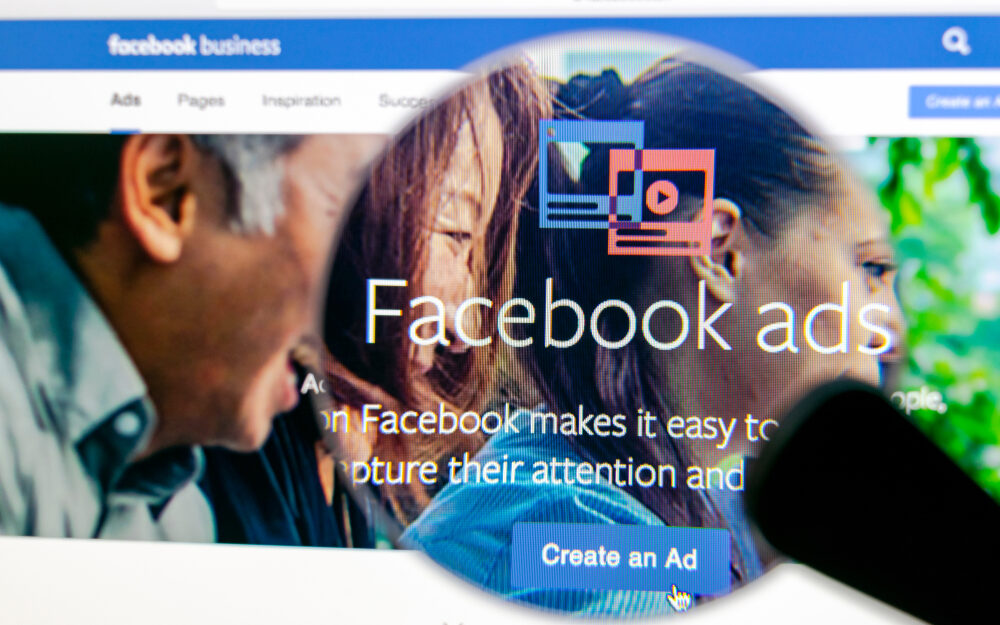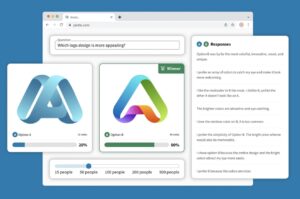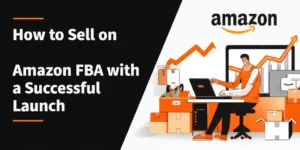Harness the Future: Top 9 Facebook Advertising Trends and Tips for 2024
In the dynamic realm of digital marketing, Facebook stands as a pivotal advertising powerhouse, especially as we navigate into 2024. With a staggering 3 billion monthly active users, Facebook not only offers extensive reach but is also renowned for delivering some of the highest returns on investment across all social media platforms. This makes it an indispensable tool in the arsenal of any marketer looking to excel in digital strategies.
For businesses utilizing services ranging from website development to SEO, and e-commerce solutions like Shopify and WooCommerce, staying updated with the latest Facebook advertising trends is crucial. This blog will uncover the nine essential Facebook advertising trends and tips for 2024, equipping you with the strategies needed to leverage this platform’s full potential. We will dissect how these emerging trends can be harnessed effectively within your digital marketing campaigns, ensuring your business not only keeps pace but stays several steps ahead in the competitive digital arena.
From exploring the impactful rise of micro-influencers and the seamless integration of AI technologies to enhancing e-commerce engagements and capitalizing on the authenticity of user-generated content, each trend offers a unique opportunity to amplify your marketing efforts. Whether you manage a budding startup or a flourishing enterprise, these insights are designed to propel your Facebook strategy to new heights, ensuring your brand not only participates in the digital conversation but significantly influences it.
The Future of Influencer Marketing on Facebook
1. The Growing Impact of Influencer Marketing
As we march into 2024, influencer marketing continues to dominate the social media landscape, adapting and evolving to meet the dynamic needs of digital advertisers. This trend is particularly pronounced on Facebook, where influencers have a profound impact on consumer behavior and purchase decisions. According to a Facebook business report, 84% of global consumers are likely to purchase products based on the content created by influencers. Moreover, campaigns that synergize traditional advertisements with influencer endorsements are 85% more likely to persuade consumers to add products to their carts.
This significant influence is largely attributable to the authenticity and relatability that influencers bring to the table—qualities that are highly prized by today’s savvy consumers. Recognizing this, more Facebook advertisers, from nimble startups to large-scale enterprises, are poised to adopt influencer marketing into their strategies.
2. How to Strategically Partner with Influencers
2024 marks a pivotal year for adopting a more nuanced approach to influencer partnerships, particularly through the rise of micro-influencers. These individuals may have smaller followings compared to their macro counterparts, but they wield considerable authority within specific niches. This makes them ideal for brands that cater to specialized markets, from tech gadgets to artisanal foods.
To leverage this trend, businesses should focus on identifying influencers whose audience demographics align closely with their target market. For instance, a company specializing in eco-friendly products might partner with an influencer known for their advocacy in sustainability. This alignment not only ensures that the promotional messages reach the right ears but also boosts the credibility of the brand through association.
Effective influencer partnerships also require creating high-quality, engaging content that resonates with both the influencer’s audience and the brand’s customer base. Authenticity should be at the heart of all created content, ensuring it feels genuine and not overly promotional.
To truly capitalize on influencer marketing in 2024, businesses must also embrace the power of data-driven insights. Tools and analytics platforms can help pinpoint the exact impact of influencer campaigns, from tracking engagement rates to measuring conversion lifts. This data is invaluable for refining strategies and proving ROI, making the case for further investment in influencer marketing even stronger.

AI Innovations in Facebook Advertising
1. The Rise of AI in Social Media Engagement
Artificial intelligence (AI) is revolutionizing the way businesses engage with customers on social media, particularly through Facebook. As AI technology becomes more accessible and advanced, its integration into Facebook advertising strategies is not just a futuristic concept—it’s a current reality with substantial benefits. According to insights from LocalIQ, over 80% of marketers are already utilizing AI tools to enhance their advertising efforts, demonstrating the widespread adoption and success of this technology in the marketing domain.
AI-powered tools, particularly chatbots, are transforming customer interactions on Facebook. These AI-driven assistants handle a vast array of tasks, from initiating contact with users to providing instant responses to customer inquiries. This not only improves engagement rates but also significantly enhances the customer service experience. Chatbot statistics suggest that these bots are capable of managing 70% of customer conversations without human intervention, enabling businesses to streamline operations and allocate human resources more effectively.
2. Practical Applications of AI in Facebook Strategies
One of the most impactful ways AI is being integrated into Facebook advertising is through the development of AI-powered chatbots within Facebook Messenger. These bots are designed to simulate intelligent conversations with users, providing them with tailored responses and facilitating a more personalized interaction. Implementing these AI chatbots can lead to better customer engagement and improved lead generation, which are crucial for enhancing conversion rates.
Moreover, Facebook’s introduction of “AI Studio” allows advertisers to create bespoke AI applications that can automate and optimize various aspects of their advertising campaigns. This includes everything from content creation to audience targeting, dramatically reducing the time and effort required to manage campaigns while simultaneously increasing their effectiveness.
For businesses, the practical applications of AI in Facebook advertising are manifold:
- Improving Customer Engagement: AI chatbots respond instantly to inquiries, guiding users through a seamless interactive experience and maintaining their interest and engagement.
- Scaling Up Chat Support: By handling large volumes of interactions without human oversight, chatbots allow businesses to offer consistent, 24/7 customer service.
- Generating Quality Leads: Chatbots can be programmed to collect and analyze customer information, helping businesses qualify leads more effectively and tailor their marketing strategies accordingly.
- Cross-Platform Integration: AI tools can synchronize with various e-commerce and CRM platforms, creating a unified marketing strategy across different channels.
The integration of AI into Facebook strategies not only streamlines operations but also provides a substantial competitive edge by enhancing user engagement and personalizing the customer journey. As we move further into 2024, embracing these AI innovations will be key for businesses looking to optimize their social media strategies and achieve superior marketing outcomes.

Ecommerce Integration with Facebook
1. Enhancing Ecommerce via Facebook
In 2024, Facebook continues to redefine the ecommerce landscape, offering innovative features that transform the platform into a direct channel for online shopping. The evolution of ecommerce on Facebook has been rapid and responsive, adapting to consumer demands for a more integrated and seamless shopping experience. This trend is underpinned by significant advancements in Facebook Shops and Advantage+ campaigns, which are designed to optimize the sales process and increase conversions directly through the platform.
The increasing centrality of Facebook in the ecommerce sector is highlighted by statistics from Hootsuite’s blog, which notes that 37% of Facebook users made a purchase through the platform in 2023. This figure is poised to grow as Facebook continues to enhance its shopping features, making it easier and more enticing for users to shop while they scroll.
2. Optimizing Ecommerce Campaigns on Facebook
To maximize the effectiveness of Facebook in the ecommerce realm, businesses must focus on creating a seamless shopping experience. This includes leveraging Facebook’s ecommerce features, like mobile-first Facebook Shops. These shops allow businesses to set up a customizable storefront directly on Facebook, providing consumers with a convenient and familiar environment to explore products. More information on setting up and optimizing Facebook Shops can be found on Facebook’s business help page.
Moreover, Facebook’s Advantage+ shopping campaigns offer another layer of optimization. These campaigns utilize machine learning to automatically test different combinations of ads to determine which performs best, thereby increasing the efficiency of ad spend and improving overall sales outcomes. This approach not only enhances user experience but also drives better engagement and conversion rates by presenting the most relevant products to users based on their previous interactions and preferences.
To further integrate ecommerce efforts, businesses should consider the following strategies:
- Developing Shoppable Ads: Create ads that allow users to make purchases directly from the ad interface, minimizing the steps needed to convert interest into sales.
- Leveraging User Data: Utilize Facebook’s rich user data to target ads more effectively, ensuring that products are shown to those most likely to be interested, based on their browsing and purchasing history.
- Enhancing Mobile Responsiveness: With a significant portion of Facebook users accessing the site via mobile devices, ensuring that all shopping features and ads are optimized for mobile is crucial.
By effectively integrating these features and strategies, businesses can not only capitalize on the direct sales opportunities offered by Facebook but also create a more engaging and convenient shopping experience for users. This integration is essential for brands looking to leverage social media platforms not just for promotion but as a vital part of their sales infrastructure.

UGC Will Continue to Skyrocket Facebook Ads Engagement
1. Leveraging UGC for Enhanced Engagement
User-generated content (UGC) has become an increasingly valuable asset in the advertising strategies of brands across various platforms, and Facebook is no exception. The raw, authentic appeal of UGC not only builds credibility but also significantly enhances engagement with audiences. This trend is particularly potent on Facebook, where authenticity can greatly influence consumer behavior.
The compelling nature of UGC and its impact on consumer trust is highlighted by Nosto’s statistics, which reveal that 90% of consumers find authenticity important when deciding which brands they support. UGC, by its very nature, exudes authenticity as it comes directly from peers rather than corporate marketing. Additionally, leveraging UGC can lead to substantial increases in click-through rates (CTRs) and conversions, with Flowbox’s blog reporting up to a 300% increase in CTRs thanks to authentic UGC.
2. UGC Strategies for Facebook Ad Success
To effectively utilize UGC in Facebook advertising campaigns, businesses must adopt strategic approaches to sourcing and implementing this content type. One successful method is to encourage satisfied customers to share their experiences or product reviews on their own Facebook timelines, offering incentives such as discounts or contest entries in exchange for their participation.
Here are a few practical tips for integrating UGC into Facebook ads:
- Harvest UGC Creatively: Launch social media challenges or use hashtags to collect user-generated content. This not only provides fresh content but also engages your audience in a way that feels interactive and fun.
- Feature Real Stories: Use real customer testimonials and stories in your ads. This approach not only validates your product but also makes your ads relatable and convincing.
- Maintain Quality Control: While UGC is inherently raw, ensuring that the content maintains a level of quality and aligns with your brand’s image is essential. Selecting the right UGC is crucial to maintaining your brand’s reputation.
Utilizing UGC in Facebook ads requires a balanced approach. While it’s beneficial to showcase real, relatable content, it’s equally important to curate and choose pieces that reflect well on your brand, aligning with your overall marketing goals and audience expectations.

Additional Tips to Maximize Facebook Ad Performance
To ensure your Facebook advertising campaigns are not only current but also highly effective, integrating the following advanced strategies will be essential in 2024. These tips are designed to harness the full potential of the platform, delivering personalized experiences at scale and optimizing your advertising efficiency.
1. Utilize Short-Form Video to Capture Attention
The dominance of short-form video content continues to grow, capturing the attention of users quickly and effectively. This format is ideal for the fast-paced environment of social media, where users scroll through content rapidly. Emphasizing the power of short-form video, statistics indicate that 72% of Facebook users prefer this type of content, which can significantly enhance engagement rates and ad recall.
Here are a few key strategies for creating compelling short-form videos:
- Keep it concise and engaging: Aim to deliver your message within 15-30 seconds, using visually appealing graphics and clear, engaging narratives.
- Incorporate strong calls to action: Ensure each video has a clear call to action, guiding viewers on what to do next—whether it’s visiting a website, signing up for a newsletter, or making a purchase.
- Test and optimize: Use Facebook’s robust testing tools to try out different versions of your videos to see what resonates best with your audience.

2. Leverage the Power of UGC Across Your Campaigns
As discussed earlier, user-generated content not only enhances authenticity but also significantly boosts engagement and trust. Integrating UGC into your campaigns can be a game-changer, providing content that resonates deeply with potential customers. For practical application, consider these tactics:
- Feature customer testimonials and reviews prominently in your ads.
- Encourage users to share their own photos and stories using your products, which can be repurposed into ad content.
3. Create a Frictionless Shopping Experience
With the advancements in Facebook’s ecommerce features, creating a seamless shopping experience from ad to purchase is crucial. Set up a well-organized Facebook Shop, use shoppable ads, and ensure your landing pages are optimized for quick conversions. Here are a few tips:
- Optimize your Facebook Shop: Ensure that your virtual storefront is visually appealing and easy to navigate.
- Use Facebook Advantage+ Shopping campaigns: These allow you to dynamically test various creative elements to see which ones drive the best performance.

4. Launch DCO and Tailored Campaigns to Drive Personalization at Scale
Dynamic Creative Optimization (DCO) and tailored campaigns enable you to create personalized ad experiences at scale, crucial for engaging diverse audiences effectively. By dynamically combining various ad elements based on user behavior and preferences, these tools help deliver the most relevant and engaging content to different segments of your audience.
5. Use Broad Audience Targeting to Fuel the Facebook Algorithm
Broad audience targeting allows Facebook’s algorithm to optimize who sees your ads based on performance data and engagement. While it may seem counterintuitive, starting with a broader audience can lead to more precise and effective targeting as the campaign progresses, enabling the algorithm to identify high-value segments more effectively.
Conclusion
As we look forward to 2024, the landscape of Facebook advertising is poised for exciting developments that promise to enhance how brands engage with one of the largest audiences on the internet. From the strategic use of micro-influencers and AI-driven technologies to the integration of e-commerce functionalities and the authentic appeal of user-generated content, these trends reflect a broader shift towards more personalized, interactive, and efficient marketing practices.
By understanding and leveraging these trends, businesses can not only stay ahead of the curve but also achieve remarkable results in their digital marketing efforts. Whether you’re looking to deepen customer engagement, boost conversion rates, or drive sales through innovative Facebook strategies, the insights provided here will equip you with the knowledge and tools necessary for success.
Elevate your Facebook advertising strategy for 2024 with Get Client Online Agency. Our experts are ready to help you harness the power of the latest trends and technologies to boost your digital marketing results. Whether you’re looking to enhance engagement, increase conversions, or drive sales, we have the tools and expertise you need.
Contact Us Today and let’s achieve marketing excellence together.




